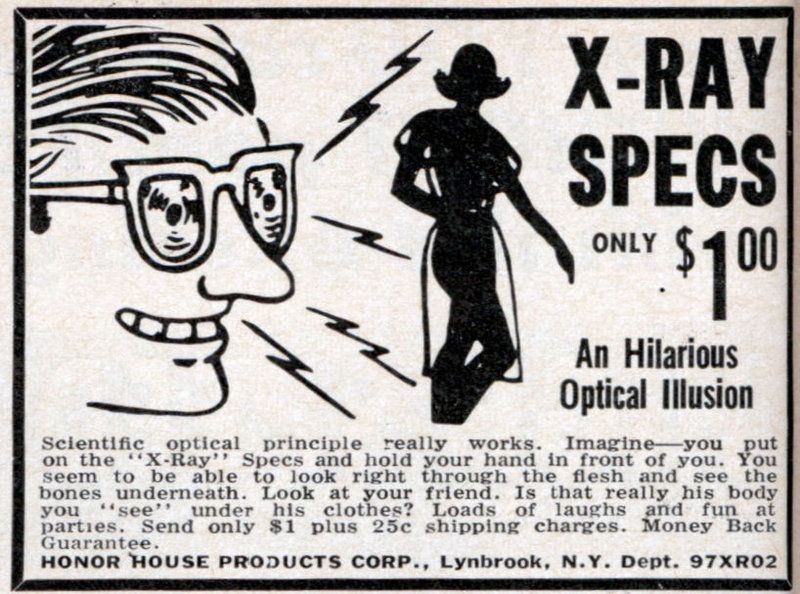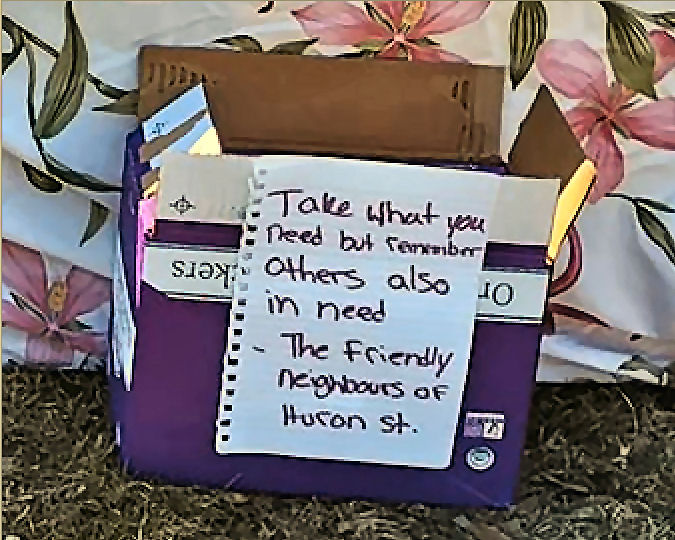Are Some Christmas Carols a Bad Influence?
Disclaimer: This blog post is a decidedly tongue-in-cheek look at traditional Christmas carol lyrics. I’m not being serious; I’m merely pointing out a few lyrical details that I find ironic or amusing. Therefore, if you’re a wannabe Social Justice Warrior, please don’t try to claim this as your latest cause, or make any effort to “cancel” these Christmas carols.
.
Do some Christmas carols contain examples of poor behaviour? I’m not talking about the modern and somewhat sultry Santa Baby, or I Saw Mommy Kissing Santa Claus – I’m referring to the traditional carols you sang as a child. After a closer inspection of the lyrics, I discovered that some of the songs that filled your heart with joy each December depicted behaviour that would definitely put people on Santa’s naughty list!
The Christmas Song
The first example is The Christmas Song, more commonly known as Chestnuts Roasting on an Open Fire, offers the following heartfelt best wishes:
“And so I’m offering this simple phrase, to kids from one to ninety-two,
Although it’s been said many times, many ways, Merry Christmas to you.“
It’s a lovely sentiment, but what about those folks who are 93 and older? Don’t they also deserve a merry Christmas? People of that age are more likely to be widows and widowers, living out their final years without companionship. They may be languishing in a nursing home. Surely they, of all people, deserve some happiness and shouldn’t feel expressly excluded when listening to Christmas carols.
To be fair, The Christmas Song was written in 1945, and back then, people didn’t live quite as long as they do today. In 1945, the average life expectancy in the United States was 64.7 years, so 92 was a reasonable age for its time. Unlike us, it simply didn’t age well over the decades (irony unintended).
.
We Wish You a Merry Christmas
On the surface, this sounds like a delightful seasonal tune, full of good cheers and fond wishes “Good tidings we bring, to you and your kin“. However, that’s just the first verse. Dig a little deeper, and the tone becomes decidedly self-entitled and rude…
Verse 2: “Oh, bring us some figgy pudding, and bring it right here.“
Verse 3: “We won’t go until we get some, so bring it right here.“
Not only are the singers demanding some food, but they won’t even lift a finger to get it – they insist that it be brought to them. The second verse is nothing less than extortion. And that’s what’s happening each year: thousands of people singing verses about demanding free food from strangers, and then topping it off with an overt threat to ensure that they receive it. This is not exactly a shining example of the proverbial “good will toward men”.
There is more to the story, of course, so allow me to share this song’s historical context, in order to prevent society from descending into anarchy next Christmas. In England, several hundred years ago, the less fortunate would sing Christmas carols at the houses of the wealthier people, and receive some sort of handout as a token of their appreciation (figgy pudding and a cup of good cheer). The line “We won’t go until we get some” is interpreted as: the carolers won’t stop singing until they received something from the homeowner.
.
The Little Drummer Boy
This song has been the inspiration for the following memes.
These meme authors make a good point: Mary, an exhausted new mother, can rest now after Jesus has finally fallen asleep. Along comes a boy who thinks to himself “What this lady needs right now is a drum solo!”
The Little Drummer Boy was written in 1941 by Katherine Kennicott Davis. According to Wikipedia, “[One day], when she was trying to take a nap, she was obsessed with this song that came into her head.” It’s almost as if she were thinking “If this song is preventing me from taking a nap, then it will also prevent the baby Jesus from having a nap!”.
.
It’s a Wonderful Life
It’s not a Christmas carol, but it’s arguably the most beloved Christmas movie of all time. However, it also contains a poor behavioural example, and I’m not talking about that dastardly Mr. Potter. Consider this scene at the beginning of the film:
The angel Clarence, at the beckoning of his elders, prevents George Bailey from committing suicide – but only so he can earn his wings, and not because helping others is the right and decent thing to do.
Clarence: You sent for me, sir?
Franklin: Yes, Clarence. A man down on Earth needs our help.
…
Clarence: Sir… If I should accomplish this mission – I mean – might I perhaps win my wings?
Even for a human, this is an incredibly self-serving attitude. Angels (and even potential angels) should hold themselves to a much higher standard of behaviour than mere mortals. Don’t adopt Clarence’s quid pro quo philosophy of life – embrace the spirit of giving. Make a point of helping others because it’s the right thing to do, and not because there’s something in it for you.
.
Winter Wonderland
Sleigh bells ringing, snow glistening… this song certainly paints a wonderful portrait of the holiday season. However, things soon become more sinister… Here is an excerpt:
“In the meadow, we can build a snowman,
And pretend that he’s a circus clown.
We’ll have lots of fun with Mr. Snowman,
Until the other kiddies knock him down.“
This song normalizes vandalism. If the neighbourhood kids build a snowman in their front yard, then you should admire their handiwork, ambition and Christmas spirit. However, this song makes it seem inevitable that other kids will knock down their neighbour’s snowman, simply because it exists. To me, that’s unacceptable, and is a symptom of a broken society. Notice also that these perpetrators are called “kiddies”, instead of the juvenile vandals that they really are – in an attempt to downplay the seriousness of their anti-social behaviour.
However, there is a glimmer of hope. The Eurythmics recorded a version with slightly altered lyrics. The line in their adaptation is:
“We’ll have lots of fun with Mr. Snowman,
until the other kiddies come around.“
It’s a subtle, but important modification. My interpretation is that the neighbourhood children are walking by your house, and asking you to join them in whatever winter activities they have planned. At this point, you would leave your snowman for a while, and join your friends. This Christmas season, be like Annie Lennox and Dave Stewart: let your Christmas spirit include not only goodwill toward others, but also inclusiveness and camaraderie.
.
I’ll Be Home for Christmas
This song was first recorded in 1943 by Bing Crosby. Its point of view is that of a soldier stationed overseas during World War II, writing a letter to his family. In the first verse, he tells his family that he will be coming home for Christmas, and to make preparations for his arrival.
“I’ll be home for Christmas,
You can count on me.
Please have snow and mistletoe,
And presents on the tree.“
But in he final verse, a visit no longer seems likely.
“I’ll be home for Christmas,
If only in my dreams.“
My objection is this: don’t make promises that you can’t keep, especially as a husband and a father. Don’t get your children’s hopes up, put them to work in anticipation of your presence, and then fortify your promise with the words “You can count on me” (some versions of this song use the line “You can plan on me“). This is not what you should say to children who are trying to cope with an absent father, and who are longing for a solid paternal role model.
Fortunately, there is a glimmer of hope. Neil Diamond updated the lyrics in his version of this song.
I’ll be home for Christmas,
And you’ll be in my dreams. (verse 1)
Till then you’ll be in my dreams. (verse 2)
He then adds a new (spoken) verse that makes it perfectly clear that he fully intends to keep his promise:
“I’ll be home this Christmas, darling.
I’m coming home to you.
And there’s nothing in the world
That’s gonna get in my way.“
This Christmas season, be like Neil Diamond. Your family is looking up to you as a good behavioural role model. Don’t let them down.
.
























 U.S. President Barack Obama consoles a tornado victim in Moore, Oklahoma, May 2013.
U.S. President Barack Obama consoles a tornado victim in Moore, Oklahoma, May 2013.













Reclaim The Power That Celebrities Have Over You
A couple of days after Don Cherry Remembrance Day poppy scandal, one of my friends posted this observation on Facebook:
Then, a short time later, I read this article in which sports commentator Parminder Singh said of Cherry’s words “These were hurtful comments when I felt that I was pushed to the wayside along with all the other ‘you people.’ ” I must admit, I was dismayed and a little saddened to read these. The gentlemen in both examples were Sikhs, yet Cherry didn’t mention Sikhs (or any particular ethnic group) in his diatribe. He simply said “you people”. These men internalized Cherry’s mean-spiritedness and assumed that it was directed toward them. I understand why they felt this way. Back in 2017, I wrote a blog post called The Most Hurtful Interpretation, and sadly, this is yet another example of this quirk of human nature.
Don Cherry has been shooting off his mouth on a wide range of topics for as long as I can remember, and I generally ignore whatever comes out of it. Until I read my friend’s Facebook post, I had just assumed most people shared my view of celebrities and their overblown opinions.
I had no idea that Don Cherry, from his pulpit on Coach’s Corner, had the power to make people feel inadequate. I can’t undo the hurt that he’s already caused by his insensitive comments, but I would like to share and expand upon my personal philosophy regarding celebrities. This particular view has made me immune to anything they might say, and I hope that I can pass along this immunity to you.
In an ideal world, celebrities would restrict their comments to their own particular field of expertise. As you know, this is not true – many will pontificate on any subject, regardless of their level of familiarity. Also, in an ideal world, the general public would ignore media figures who tried to advise them when speaking outside of their particular field. Alas, this also rarely happens.
One truly bizarre example that still leaves me shaking my head is: those wayward souls who are opposed to vaccinations. Many people have been taking the advice of celebrities (who have no medical education or training) over the sound advice of their doctors. According to this article, When it Comes to Vaccines, Celebrities Often Call the Shots fame and social status seems to be more highly regarded than informed and educated opinions. This is truly sad, because this skewed attribution of importance has resulted in a resurgence of many potentially fatal and debilitating diseases. Simply having your face on a television screen does not mean that you’re well-informed, or that you know more than anyone else – listen to and follow your doctor’s advice.
Of course, some of what celebrities say is officially sanctioned, and takes the form of a corporate sponsorship. Back in the 1990s, I saw a TV commercial about batteries featuring (basketball legend) Michael Jordan. My initial thoughts were “What does Michael Jordan know about batteries? Probably less than I do. Why should I listen to him, when I can approach a random person on the street and likely receive a more informed opinion?” Secondly, that commercial didn’t even address any pertinent information, such as: its storage capacity compared to leading competitors, its shelf life, how well it works with high-drain devices, and a cost per use comparison. So I did what I usually do – I completely ignored whatever he said about batteries.
This has been my prevailing attitude toward celebrity endorsements for as long as I can remember. I know that they’re getting paid a lot of money as a spokesperson, and that personal enrichment is likely the motivating factor behind their decision. Celebrity endorsements have a negative effect on me because my first thoughts are generally “Don’t you already make enough money?” or “Are you unable to stay within your lofty budget, or are you just greedy?”.
Of course, linking a famous name to a product shouldn’t be confused with designer labels, like Tommy Hilfiger, Calvin Klein, Michael Kors etc. Their primary business is selling clothes, and their name is their brand. This is their area of expertise. The ones I ignore are those who espouse opinions or promote products in an unrelated industry, in which they have no expertise or experience. If Wayne Gretzky wants to sell a certain brand of hockey stick, then that carries some weight. On the other hand, if he wants me to buy a particular brand of ketchup, then I will likely switch the channel or turn the magazine page.
Until now, I just assumed that everyone automatically made this distinction. Which brings us to Don Cherry and Coach’s Corner…
Don Cherry had a notable career both as a hockey player and as a hockey coach. He knows far more than I, and I would not question his knowledge or challenge his advice in this arena. However, when it comes to immigration, he is obviously out of his depth, and I don’t feel that I have any obligation to give his opinions any weight, to agree with him, or even to listen to his rants. Frankly, he can say anything he likes about immigration, and his views will be summarily ignored. That’s why I was so surprised and disparaged to hear about my friend’s Facebook post, and the CBC article. Clearly, there are many people who are taking his comments to heart, and who feel genuinely hurt, or even threatened, by them.
Here is my call to action: I want you to reclaim your ability to be influenced, and refuse to hand it over to anyone who appears on a television screen, or on any type of media, social or otherwise. Doing this is incredibly easy. Take a look at this man, announcing that the end of the world is imminent. If you passed him on the street, how would he make you feel?
You would probably be amused, or perhaps feel a slight twinge of pity. However, I don’t imagine that you would suddenly run home and begin getting your affairs in order. That’s because it’s a pretty safe bet that this guy doesn’t know – any more than you or I – when the world is going to end. You haven’t given him any credibility, and with it, the power to scare you. That’s because you know he doesn’t possess any specialized knowledge on this subject. And this is exactly the way I want you to think about Don Cherry or any other media figure when they start spouting off about any topic outside of their specialization. They don’t know any more than the average person about this particular topic, and shouldn’t be given any credence whatsoever.
Don Cherry (and people like him) don’t have the power to hurt you, or to make you feel inadequate. Unfortunately, society is giving celebrities a platform from which they can speak about any topic, even if they know very little about it. Saddest of all, we are, in many cases, allowing ourselves to be a passive audience who won’t challenge their statements except in the most egregious cases.
Don’t confuse fame with a wide-ranging expertise. Having fan base means that you should be taken seriously when speaking on any subject, or even listened to. A face on a television screen means nothing, unless you have the education and specialized knowledge to back up your statements and opinions. Knowing this will ensure that no one has the power to make you feel like less of a person. You, as a critical thinker, have more power than you realize, and celebrities have far less influence than you have been attributing to them. Reclaim your power, starting today.
.
.
Category:
Culture, Ideas, Media, Sports, Uncategorized
Tagged with: